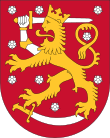 |
|---|
The minister of trade and industry (Finnish : kauppa- ja teollisuusministeri) was one of the ministerial portfolios in the Finnish Government from 1918 to 2008. [1]
In 2008, the position was replaced by Minister of Economic Affairs.
 |
|---|
The minister of trade and industry (Finnish : kauppa- ja teollisuusministeri) was one of the ministerial portfolios in the Finnish Government from 1918 to 2008. [1]
In 2008, the position was replaced by Minister of Economic Affairs.
The Republic of Estonia gained its independence from the Russian Empire on 24 February 1918 and established diplomatic relations with many countries via membership of the League of Nations. The forcible incorporation of Estonia into the Soviet Union in 1940 was not generally recognised by the international community and the Estonian diplomatic service continued to operate in some countries. Following the restoration of independence from the Soviet Union, Russia was one of the first nations to re-recognize Estonia's independence. Estonia's immediate priority after regaining its independence was the withdrawal of Russian forces from Estonian territory. In August 1994, this was completed. However, relations with Moscow have remained strained primarily because Russia decided not to ratify the border treaty it had signed with Estonia in 1999.

Finland, officially the Republic of Finland, is a Nordic country in Northern Europe. It borders Sweden to the northwest, Norway to the north, and Russia to the east, with the Gulf of Bothnia to the west and the Gulf of Finland to the south, opposite Estonia. Finland covers a total area of 338,145 square kilometres (130,559 sq mi), including a land area of 303,815 square kilometres (117,304 sq mi), and has a population of 5.6 million. Helsinki is the capital and largest city. The vast majority of the population are ethnic Finns. The official languages are Finnish and Swedish; 84.9 percent of the population speak the first as their mother tongue and 5.1 percent the latter. Finland's climate varies from humid continental in the south to boreal in the north. The land cover is predominantly boreal forest biome, with more than 180,000 recorded lakes.

The politics of Finland take place within the framework of a parliamentary representative democracy. Finland is a republic whose head of state is President Alexander Stubb, who leads the nation's foreign policy and is the supreme commander of the Finnish Defence Forces. Finland's head of government is Prime Minister Petteri Orpo, who leads the nation's executive branch, called the Finnish Government. Legislative power is vested in the Parliament of Finland, and the Government has limited rights to amend or extend legislation. The Constitution of Finland vests power to both the President and Government: the President has veto power over parliamentary decisions, although this power can be overruled by a majority vote in the Parliament.

The foreign relations of Finland are the responsibility of the president of Finland, who leads foreign policy in cooperation with the government. Implicitly the government is responsible for internal policy and decision making in the European Union. Within the government, preparative discussions are conducted in the government committee of foreign and security policy, which includes the Prime Minister and at least the Minister of Foreign Affairs and the Minister of Defence, and at most four other ministers as necessary. The committee meets with the President as necessary. Laws concerning foreign relations are discussed in the parliamentary committee of foreign relations. The Ministry of Foreign Affairs implements the foreign policy.

Erkki Sakari Tuomioja is a Finnish politician and has previously been a member of the Finnish Parliament. From 2000 to 2007 and 2011 to 2015, he served as the minister for foreign affairs. He was president of the Nordic Council in 2008.

The Centre Party, officially the Centre Party of Finland, is an agrarian-centrist political party in Finland. Ideologically, the Centre Party is positioned in the centre of the political spectrum. It has been described as liberal, social-liberal, liberal-conservative, and conservative-liberal. The party’s leader is Antti Kaikkonen, who was elected in June 2024 to succeed former minister Annika Saarikko. As of June 2023, the party has been part of the parliamentary opposition.
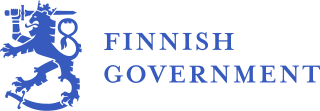
The Finnish Government is the executive branch and cabinet of Finland, which directs the politics of Finland and is the main source of legislation proposed to the Parliament. The Government has collective ministerial responsibility and represents Finland in the Council of the European Union. In the incumbent Orpo Cabinet, the Government comprises 19 ministers leading 12 ministries.

Cai-Göran Alexander Stubb is a Finnish politician serving as the 13th president of Finland, in office since 1 March 2024, having won the 2024 presidential election. He previously served as prime minister of Finland from 2014 to 2015.

Ahti Kalle Samuli Karjalainen was a Finnish economist and politician. He was a member of the Agrarian League and served two terms as Prime Minister of Finland. He is, however, better known for his period as Minister of Foreign Affairs of Finland. Karjalainen is considered one of the most influential figures in post-war Finnish politics. Like President Urho Kekkonen, Karjalainen attached great importance to Finland's relationship with the Soviet Union, and was at one point considered to be Kekkonen's likely successor until alcoholism affected his later career.

Sakari Severi Tuomioja was a Finnish politician and diplomat who served as Prime Minister of Finland between 1953–1954 and as Minister for Foreign Affairs between 1951–1952 and as the Governor of the Bank of Finland between 1945–1955. He was also Finland's ambassador in London and Stockholm.

Juho Heikki Vennola was Professor of National Economics at the University of Helsinki, a member of the Parliament of Finland, and a politician from the National Progressive Party, who served as Prime Minister of Finland twice.
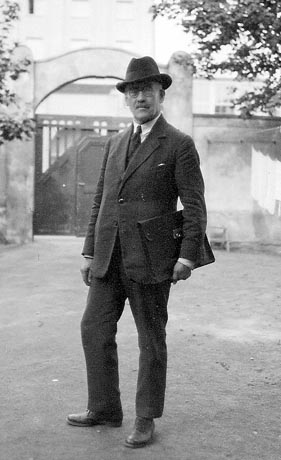
Kaarle Väinö Voionmaa was a Finnish professor, diplomat, member of the parliament of Finland, senator, minister and chancellor. He also was one of the most influential politicians during the early times of independent Republic of Finland. He was a Social Democrat.

Reijo Mauri Matias Pekkarinen is a Finnish politician. He most recently served as a Member of European Parliament for Finland between 2019 and 2024. He is the Centre Party of Finland deputy and secretary, having served in various cabinet position in the Finnish government, including as Minister of Economic Affairs, Minister of Trade and Industry, and Minister of the Interior, as well as a member of parliament. He is known by the nickname "The Parliament Terrier".

Anand Sharma is an Indian politician and former Union Cabinet Minister in charge of Commerce and Industry and Textiles in the Government of India. Since June 2014, Sharma was the Deputy Leader of opposition in Rajya Sabha, the upper house of the Indian Parliament until 2022.

Jan-Magnus Jansson was a Finnish politician, a member of the Swedish People's Party.
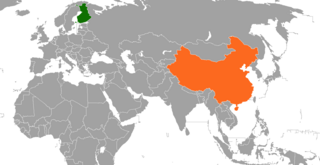
Finnish–Chinese relations are the foreign relations between Finland and China.
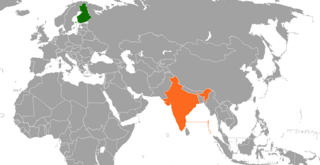
Finland–India relations are the bilateral relations between Finland and India. Finland has an embassy in New Delhi. India has an embassy in Helsinki, that is also jointly accredited to Estonia.
The Ministry of Economic Affairs and Employment is one of the ministries of the Finnish Government. The ministry implements industry, labor, and local development policies.

Sinikka Mönkäre is a Finnish physician and politician who served as minister in different cabinets of Finland.

The cabinet of Juha Sipilä was the 74th government of Finland, from 2015 to 2019. It was formed following the parliamentary election of 2015 and formally appointed by President Sauli Niinistö on 29 May 2015. From June 2017, the cabinet consisted of a coalition formed by the Centre Party, Blue Reform and the National Coalition Party. The cabinet's Prime Minister was Juha Sipilä.